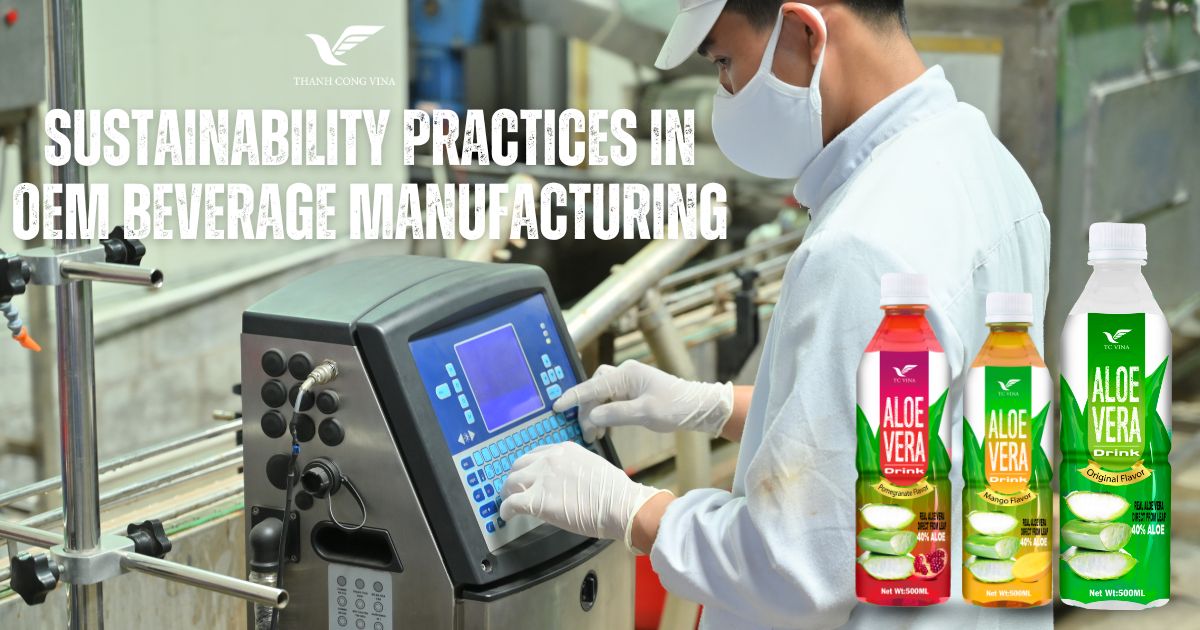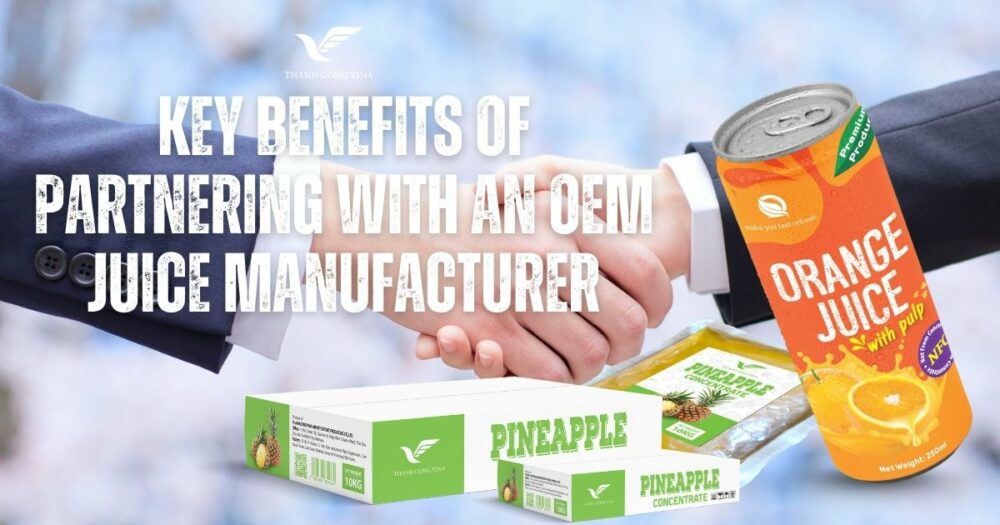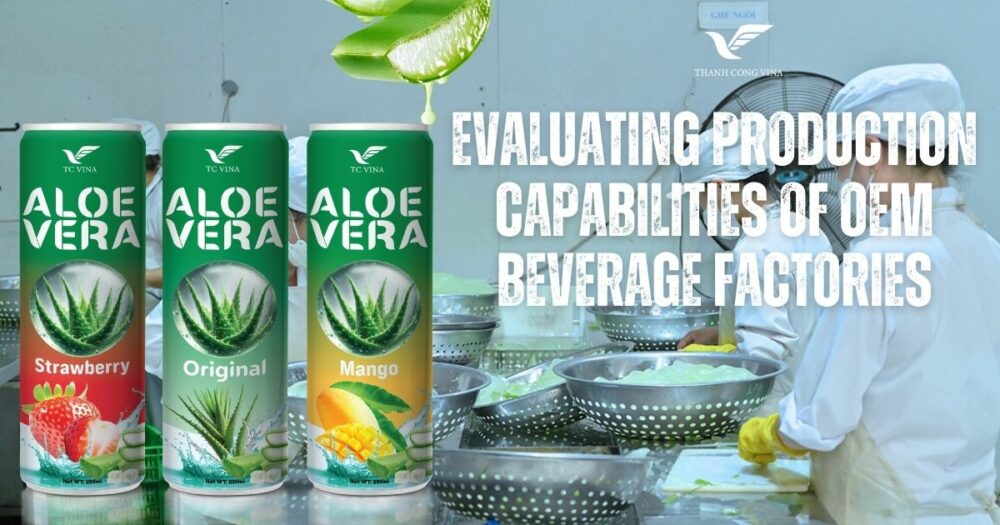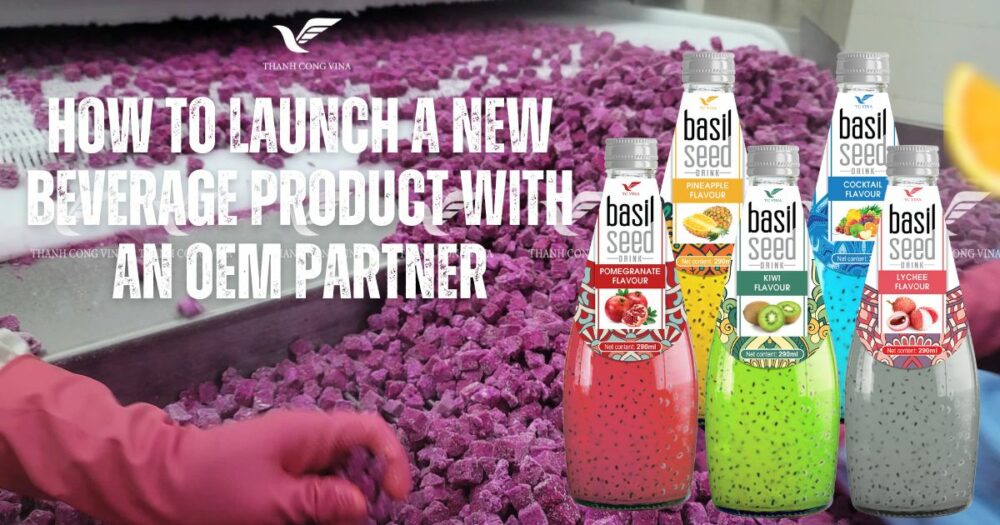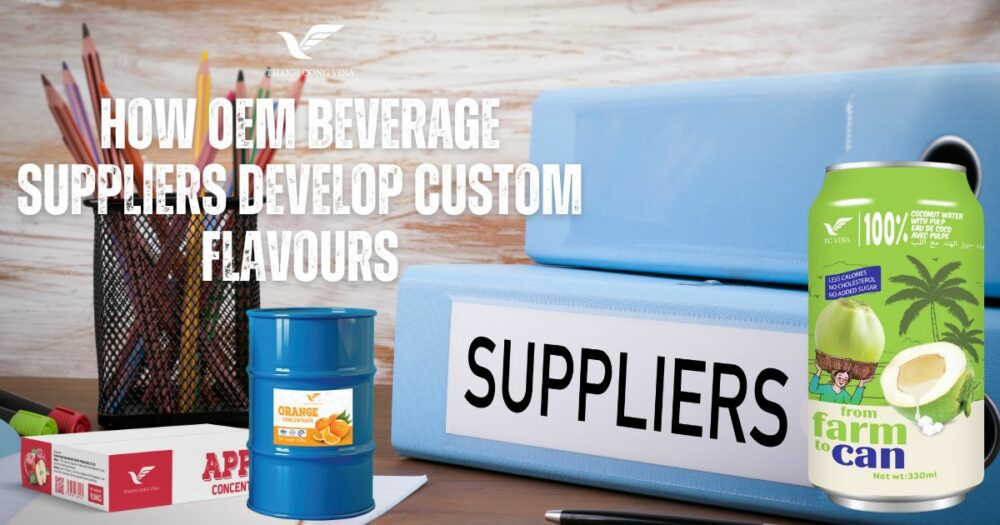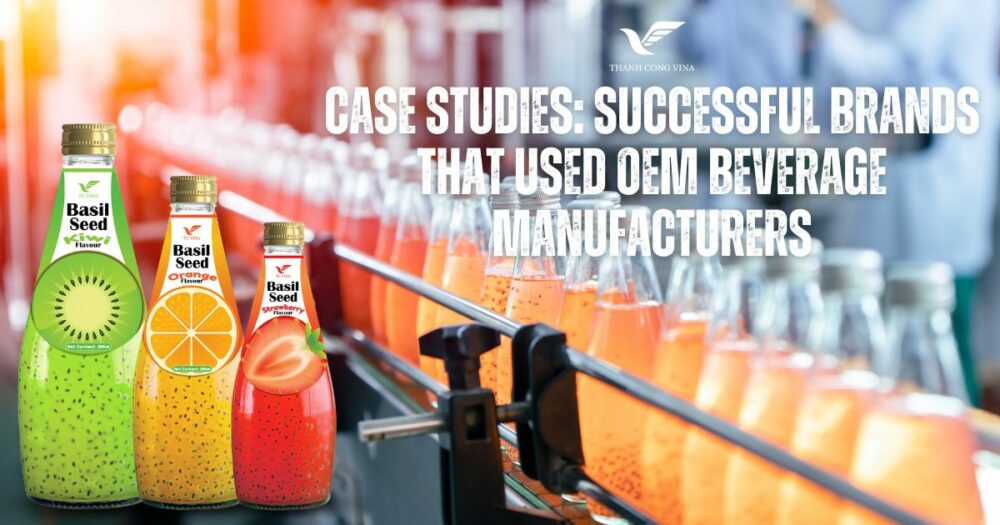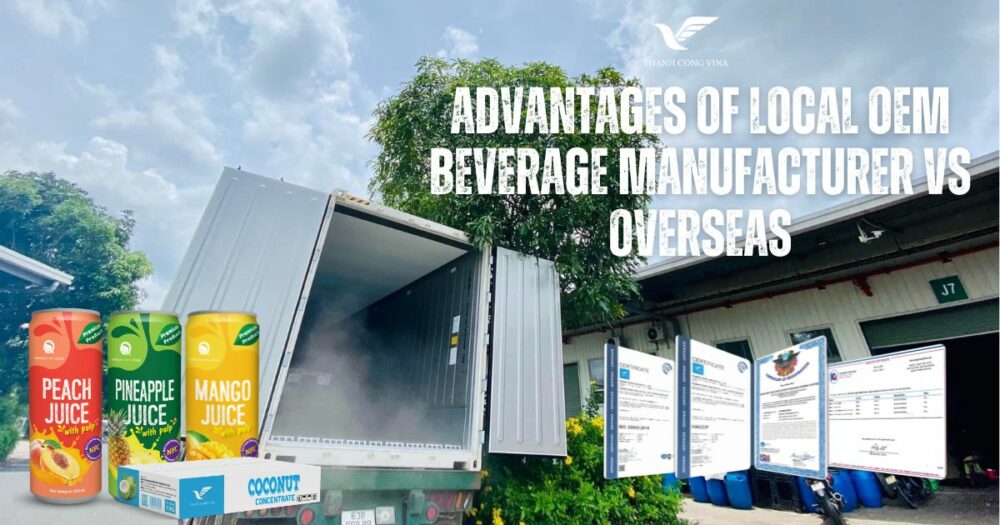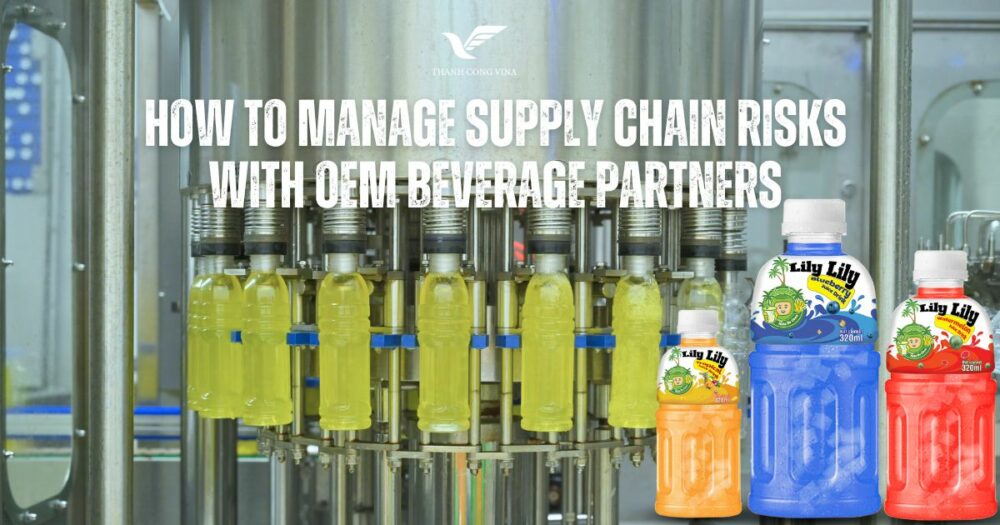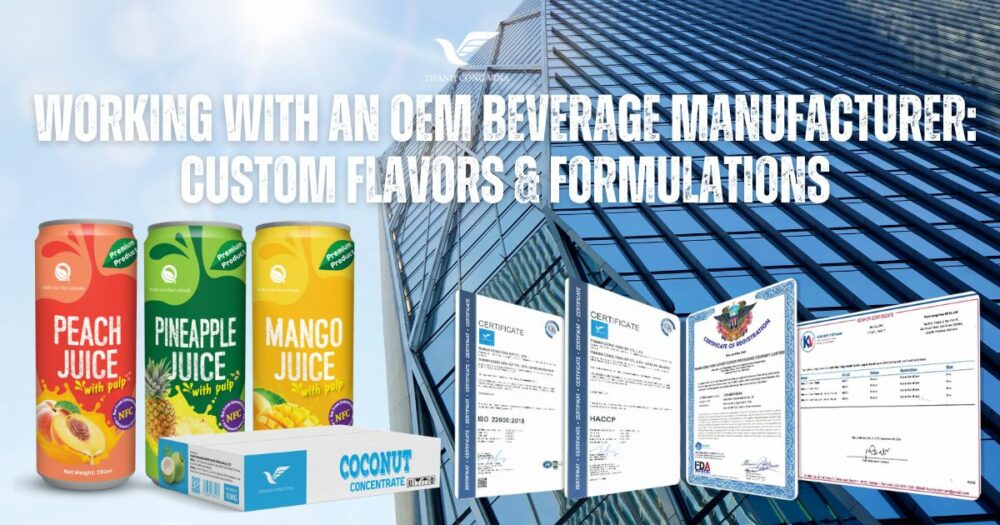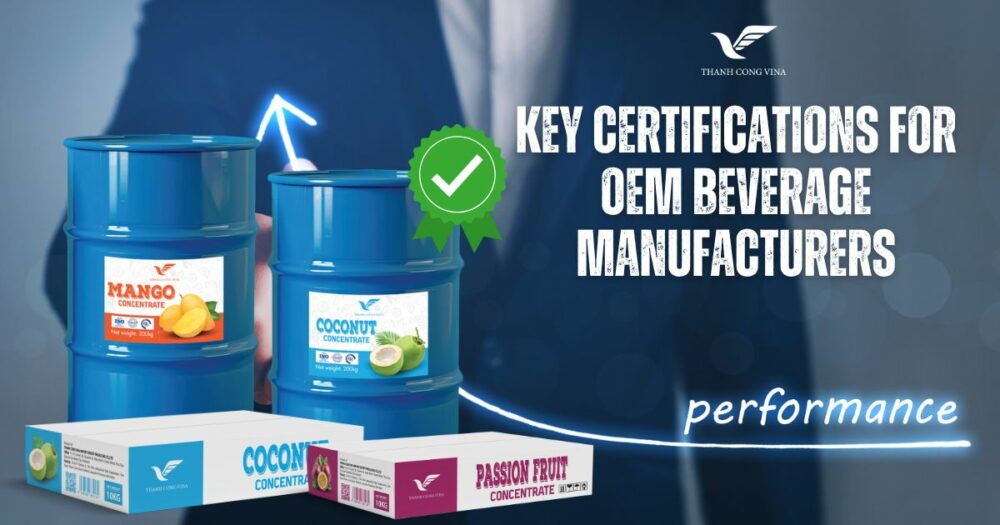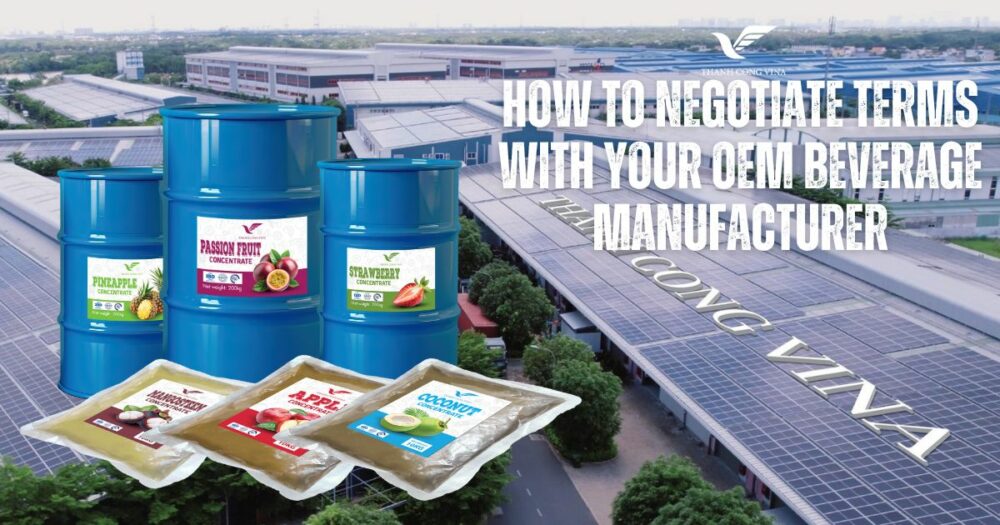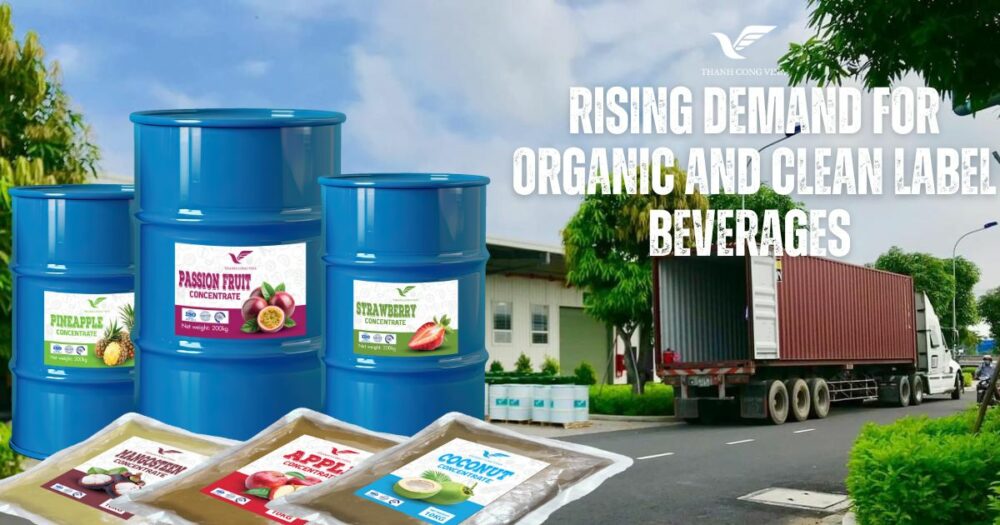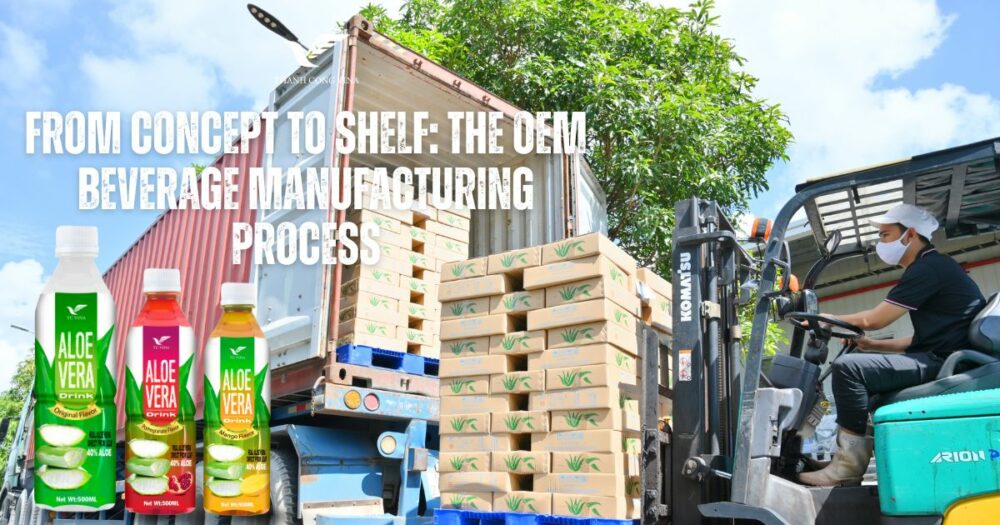Sustainability has become one of the most essential decision-making criteria in the beverage industry. Importers, private label owners, and retailers are increasingly expected to choose partners who demonstrate responsible sourcing, reduced environmental impact, and transparent waste management. For companies working with an OEM beverage manufacturer, sustainability is not only a branding opportunity — it is a long-term value strategy that reduces risk, improves supply stability, and strengthens consumer trust.
Environmental regulations across major markets such as the EU and North America are becoming stricter each year, meaning only sustainable beverage supply chains will remain competitive. From raw material procurement to production, packaging, and logistics, every step in OEM beverage manufacturing can either contribute to resource depletion or promote greener innovation. This article explores the core sustainability practices that beverage brands should evaluate when selecting the right manufacturing partner for long-term success.
1. Sustainable Ingredient Sourcing in OEM Beverage Production
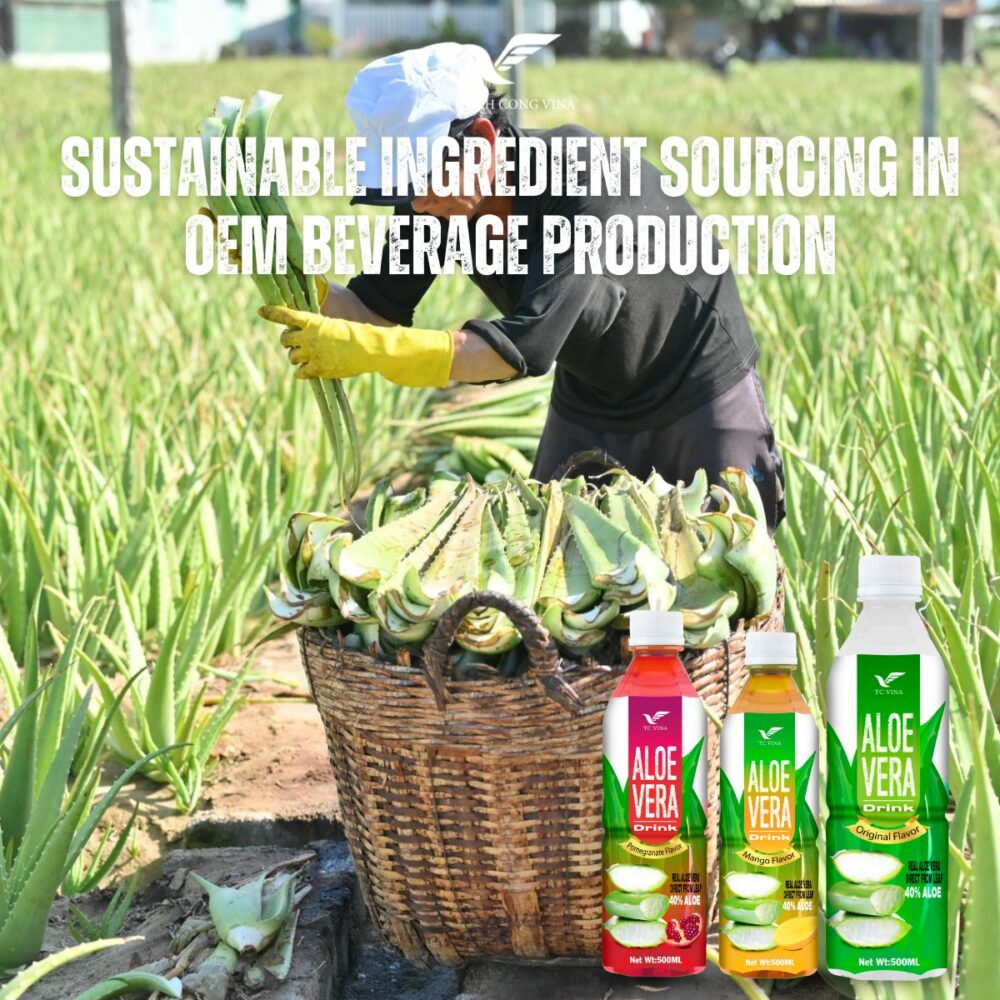
Sustainable Ingredient Sourcing in OEM Beverage Production
1.1. Supplier Traceability Systems
A sustainable OEM beverage partner must manage responsible sourcing for key ingredients such as fruit juice concentrates, tea extracts, sweeteners, and functional additives. Traceability should begin from farms, ensuring:
-
Ethical labor practices
-
Environmentally responsible cultivation
-
Verified origin through traceable documentation
Digitized tracking like ERP and blockchain enhances transparency and reduces risk of fraud or quality deviations.
1.2. Biodiversity and Regenerative Agriculture
A growing number of OEM manufacturers support:
-
Crop rotation
-
Soil restoration projects
-
Water-efficient irrigation
These practices improve long-term resource availability and reduce environmental footprint. Brands targeting health-conscious consumers highly value this credibility.
1.3. Reduction of Synthetic Additives
Market trends favor:
-
Natural colorings
-
Low-calorie plant-based sweeteners
-
Organic fruit pulps
Sustainable ingredient selection strengthens compliance with clean label expectations while reducing chemical discharge into ecosystems.
2. Water Conservation & Wastewater Treatment Efficiency
2.1. Water Usage Optimization
Beverage manufacturing is water-intensive. Leaders in OEM sustainability invest in:
-
Closed-loop water recycling systems
-
High-efficiency rinsing equipment
-
In-place cleaning (CIP) to reduce liquid waste
Monitoring water usage per liter of beverage helps measure performance.
Example benchmark:
-
Standard: 3–5 liters of water per liter of beverage produced
-
Sustainable manufacturers: 1.5–2 liters
2.2. Wastewater Treatment Technology
Efficient treatment systems include:
-
Biological treatment for organic load removal
-
Membrane filtration
-
pH stabilization before discharge
This ensures environmental safety and compliance with local and import-market regulations.
2.3. Stormwater and Rainwater Capture
Advanced facilities collect rainwater for:
-
Equipment cooling
-
Outdoor sanitation
-
Utility supply reserves during droughts
Water stewardship reduces cost volatility during shortages and enhances production resilience.
3. Energy Efficiency & Renewable Power in OEM Beverage Facilities
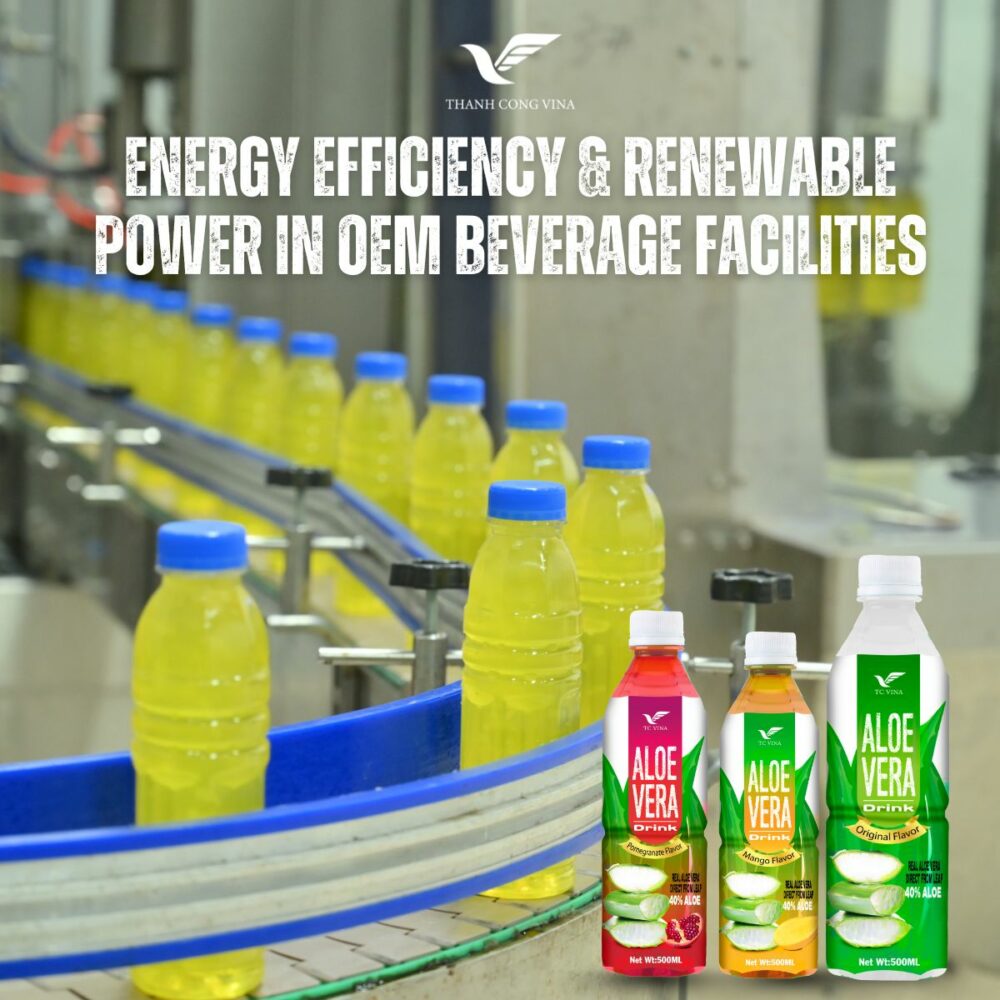
Energy Efficiency & Renewable Power in OEM Beverage Facilities
3.1. Optimized Machinery and Automation
Energy-intensive steps include mixing, heating, cooling, and bottling. High-efficiency equipment ensures lower emissions and cost control. Key indicators:
-
kWh consumption per 1,000 bottles
-
Heat recovery systems
-
Variable-frequency drives (VFDs)
Automation reduces unnecessary line stoppages and wasted power.
3.2. Renewable Energy Integration
OEM beverage plants increasingly adopt:
-
Solar power arrays
-
Biomass boiler systems
-
Wind and geothermal where feasible
Energy diversification improves ESG compliance and helps beverage brands showcase climate-positive storytelling.
3.3. Carbon Footprint Measurement
Manufacturers track emissions through:
-
Carbon calculators
-
Life-cycle analysis (LCA)
Brands should request annual reports showing measurable progress toward net-zero production goals.
4. Sustainable Packaging Innovation
Packaging accounts for a major share of environmental impact in beverages.
4.1. Lightweight Packaging Engineering
Optimizations include:
-
Lower plastic resin usage
-
Lightweight PET and caps
-
Stronger structural design to prevent damage
Weight reduction directly lowers shipping emissions.
4.2. Recyclable and Bio-Based Packaging Materials
Popular eco-friendly options:
-
Recycled PET (rPET)
-
Paper-based labels with water-soluble adhesive
-
Aluminum cans with high recycling turnover rates
Bio-based polymers reduce dependence on fossil fuels.
4.3. Circular Packaging Systems
Sustainable OEM beverage partners support:
-
Bottle return logistics for local markets
-
Collaboration with recycling networks
-
Compliance with global packaging directives
Brands benefit by aligning with consumer demand for zero-waste initiatives.
5. Solid Waste Management and By-Product Utilization
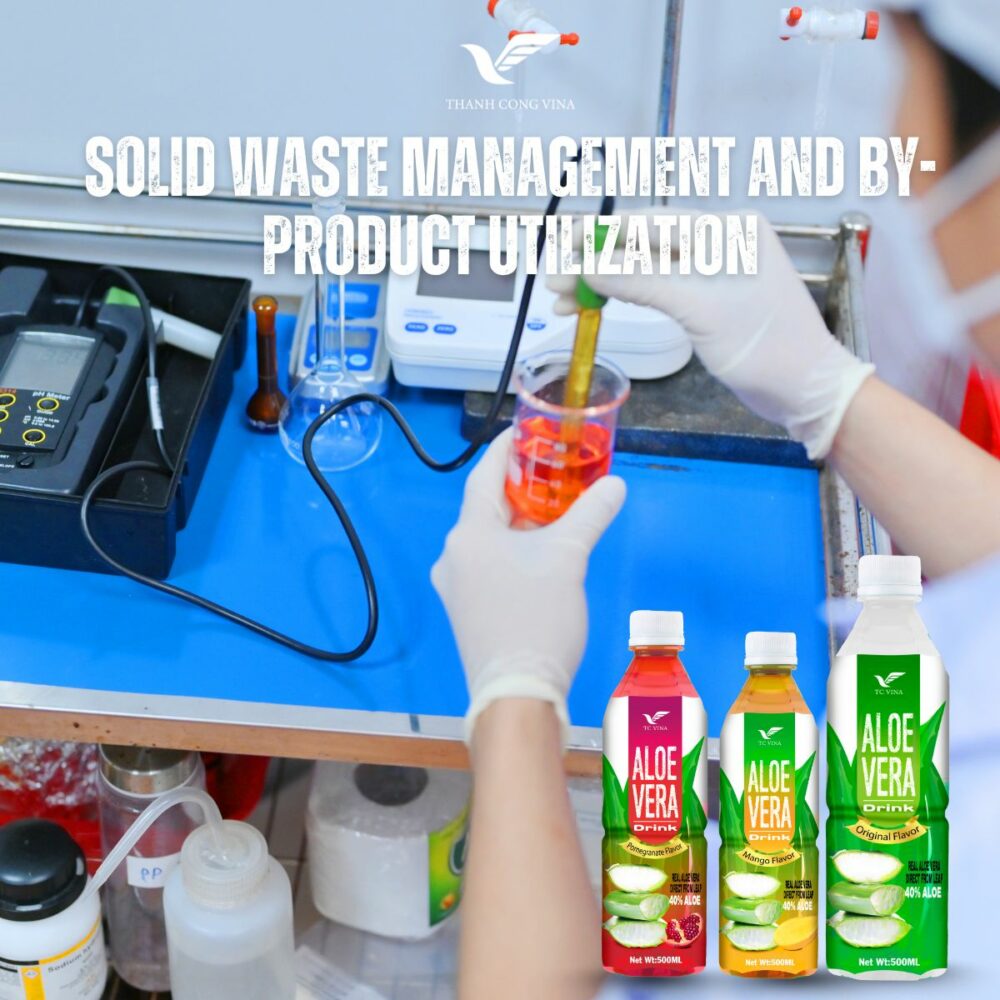
Solid Waste Management and By-Product Utilization
5.1. Waste Minimization Programs
Manufacturers reduce solid waste by:
-
Accurate raw-material batching
-
Improved inventory forecasting
-
Scrap regrind systems for PET processing
Minimizing rejects boosts both sustainability and profitability.
5.2. Upcycling Beverage By-Products
Fruit pulp, peel, and brewing residue can be turned into:
-
Animal feed
-
Compost and fertilizers
-
Functional food ingredients
Upcycling supports responsible disposal practices and circular economy strategies.
5.3. Zero-Landfill Target Policies
A strong OEM beverage partner uses:
-
Vendor partnerships for recyclable waste
-
On-site segregation
-
Continuous reduction KPIs for landfill waste
Beverage brands benefit from cleaner ESG reporting aligned with retailer requirements.
6. Ethical Labor and Social Responsibility
6.1. Worker Welfare and Safety
Sustainable operations protect workers through:
-
Safety audits
-
Regular training
-
Modernized ergonomic equipment
High labor standards reduce production disruptions and enhance retention.
6.2. Fair Wages & Transparent HR Management
OEM beverage manufacturers prioritizing ethics provide:
-
Fair and timely payment systems
-
Professional development programs
-
Non-discriminatory hiring practices
Social sustainability strengthens a brand’s credibility in global markets.
6.3. Community Engagement
Positive impacts include:
-
Local employment opportunities
-
Environmental education programs
-
Investment in infrastructure
Brands benefit when their suppliers contribute to local economic development.
7. Green Logistics & Distribution Optimization
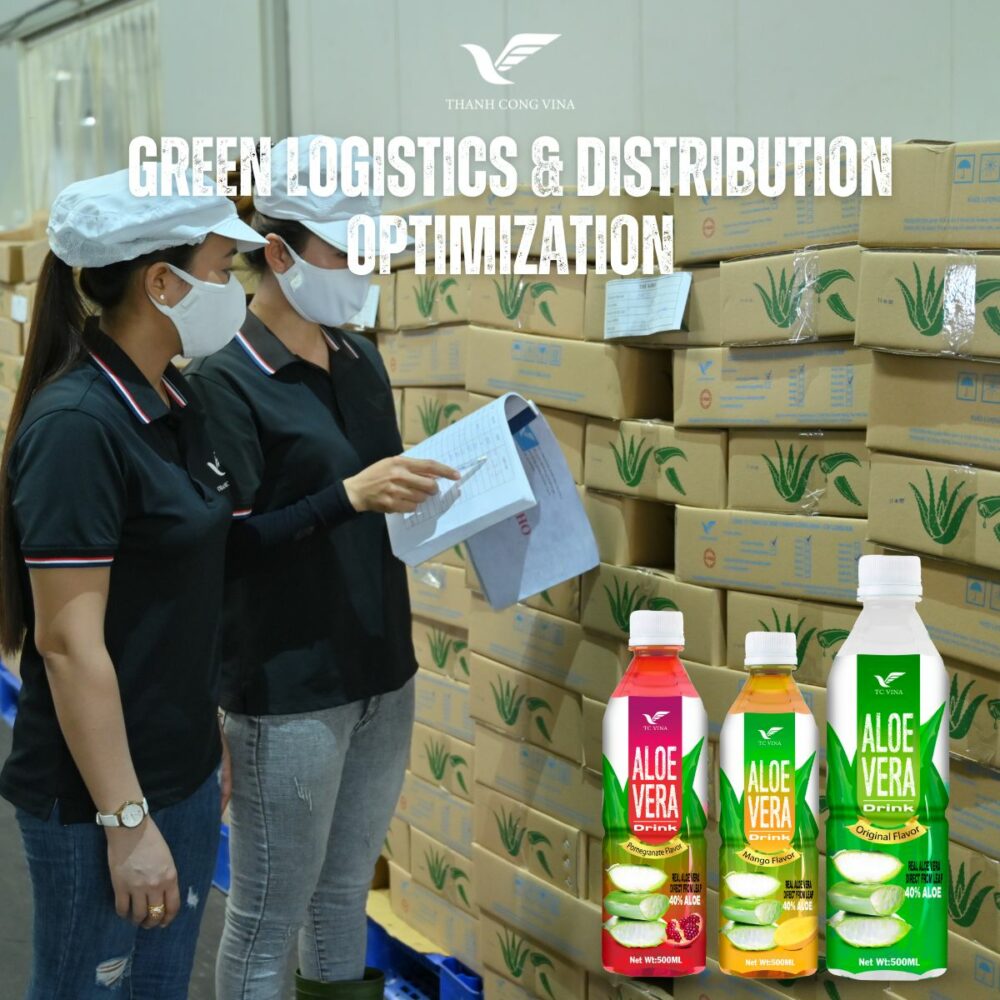
Green Logistics & Distribution Optimization
7.1. Efficient Route Planning
Capabilities include:
-
Real-time route optimization
-
Consolidated freight systems
-
Collaborative distribution networks
Reducing travel distance cuts fuel consumption and carbon emissions.
7.2. Packaging for Efficient Shipping
Sustainable packaging improves cube utilization:
-
More product per pallet
-
Better stacking strength
-
Reduced breakage during shipping
Improved logistics sustainability also lowers cost per unit delivered.
7.3. Local Sourcing & Regional Warehousing
Closer ingredient and packaging suppliers:
-
Reduce transportation emissions
-
Improve supply stability
-
Lower shipping risk during global disruptions
OEM partners with strategic geographical positioning offer faster response to market demands.
Conclusion
Sustainability is no longer optional in beverage manufacturing — it is a core requirement for global competitiveness. The right OEM beverage partner must demonstrate measurable progress in reducing environmental impact while maintaining consistent product performance and efficient production. From water conservation and renewable energy usage to recyclable packaging, ethical labor, and green logistics, sustainability expands beyond reputation — it protects long-term operational stability and customer trust. For beverage importers and private label brands, evaluating sustainability credentials is essential when selecting a manufacturing partner committed to future-ready practices.
Thanh Cong Vina is dedicated to implementing sustainable operations across production, supply chain management, and packaging innovation. With a forward-thinking approach to OEM beverage solutions, Thanh Cong Vina supports beverage brands in achieving eco-friendly product development and responsible market expansion, ensuring that growth aligns with environmental stewardship and global sustainability expectations.

